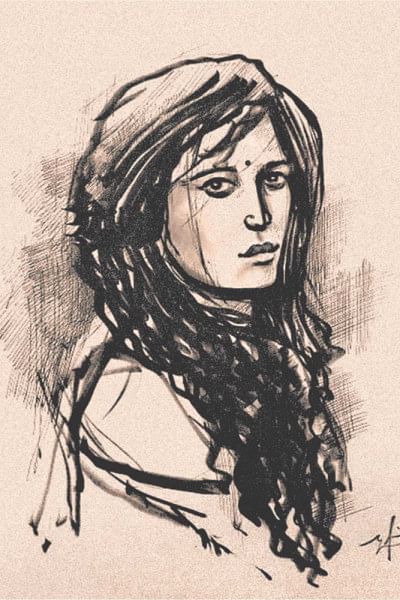Banalata Sen - An Eternal Love Story

Over the years, Bengal has produced a great number of poets. Their verses have touched thousands of people across the world—but never, perhaps, was there a poet in Bengal who described nature as well as Jibanananda Das. He not only had the power to transport one beyond the everyday bounds of sense and reason through his lines, but also, achieved it by paying tribute to mundane everyday objects of nature. Especially the ordinary objects that we see around us. Prominent writer Buddhadeva Bose in his book An Acre of Green Grass wrote, “Jibanananda is a nature-worshipper, but by no means a pantheist; he is rather a pagan who loves the things of nature sensuously, not as tokens or symbols, nor as patterns of perfection, but simply because they are what they are.” This poet, however, other than successfully describing the true essence of Bengal, also gave us readers the ultimate women of Bangla literature. In 1942, while the Indian Sub continent faced the last death-rattled years of the British Raj— Jibanananda gave us the divine beauty of Banalata Sen.
Jibanananda's Banalata Sen can be considered to be one of the most eternal poems of Bangla literature— as the character herself can be ordained with fictional personalities such as Lucy, Maria or Helen. She portrays hope—a ray of light among darkness, a speck of merriment in the pool of bareness. By creating Banalata Sen, Jibanananda gave us our own element of love that resides in the romanticism of the ages.
The poem starts with the verse Hajar Bochor Ami Poth Hatitechi Prithibir Pothe. Jibanananda himself caters as the narrator, describing him as a lone traveler who is travelling through time and various cities for thousand years. Despite roaming through Sinhala (Srilanka) or the sea of Malay (Indian Ocean) and emerging through the dark ages of Bimbisara and Ashoka, the traveler is yet to find peace. As this tired soul embarks upon Natore— the cultural and heritage hub of ancient Bengal, he finds what he was craving for all this time and writes Amay Dudonto Shanti Diyechilo, natorer Banalata Sen.
The poem continues; Chul Tar Kobekar Ondhokar Bidishar Disha, Mukh Tar Srabostir Karukarjo—describing the beauty of Banalata Sen. For over decades, these two verses have been the most subsequent of words to portray the perfect Bangali women. Jibanananda compares Banalata to the engravings of Swaraswati and establishes a direct relation between the two— making Banalata somewhat divine. When the narrator encounters her, she replies, “Eto Din Kothay Chilen”- as she was also waiting for the poet for all these years. Through this poem, Jibanananda has successfully established the eternal love which we fantasise about. We see him go through all struggles which finally leads to the perfect woman— something we all wait for.
In the last couple of stanzas of the poem we see the narrator again indulging into his struggles as the darkness descends on earth again— as he writes Shob Pakhi Ghore Ashe, Shob Nodi Furay, Ei Jiboner Shob Lenden. One of the interpretations of this verse can lead to death itself. But this time, we see him in peace as he has finally found a refuge for all his pain and sorrows. He ends the poem by writing, Thake Sudhu Ondhokar Mukhomukhi Boshibar Banalata Sen. As melancholia pervades in the end, the narrator finally faces death by reminiscing Banalata in the eternal darkness.
The actual question still remains—was there a Banalata Sen? Some say it was the poet's neighbour, while others say she was actually a sex-worker, but there's no evidence to prove either. Real or not, Banalata Sen has played a very important role in Bangla literature. For decades, she has been signified as our symbol of beauty and gave us the hope of eternal love—which as the poet wrote, lives on even after the darkness descends.

 For all latest news, follow The Daily Star's Google News channel.
For all latest news, follow The Daily Star's Google News channel. 



Comments